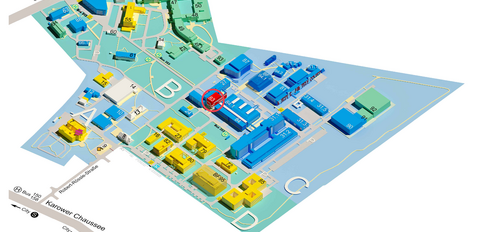Melissa H. Little: Generating human kidney tissue using pluripotent stem cells
Abstract:
The human kidney is a vital organ responsible for fluid balance, removal of waste products regulation of blood pressure and red cell count. This very complex organ contains more than 25 different cell types whose coordinated function requires accurate tissue anatomy. Chronic kidney disease will affect 1 in 10 individuals during their lifetime, however treatment options have not changed for more than 70 years. Organ transplantation is the only effective replacement option while dialysis, while keeping patient alive, comes with significant morbidity and mortality. One in 15,000 children inherit a genetic form of kidney disease and while more than 50% of presenting patients will receive a definitive diagnosis, there are no specific treatments for these conditions. Using human pluripotent stem cells, we have developed an approach to recreate a model of the human developing kidney to better model kidney disease. These kidney organoids are highly multicellular and show the presence of patterning and segmenting nephrons. This presentation will discuss how an understanding of developmental biology has made this possible and how such models of the human kidney are being applied to the development of treatments for kidney disease.
Professor Melissa Little, AC, BSc (Hons I), PhD, GAICD, FAAHMS, FAAS, is CEO of the Novo Nordisk Foundation Centre for Stem Cell Medicine (reNEW), Chief Scientist at the Murdoch Children’s Research Institute, and leader of the Kidney Regeneration Laboratory, Melbourne. Melissa is the Past President of the International Society for Stem Cell Research, an elected member of the European Molecular Biology Organization (EMBO) and holds an honorary position as Professor in the Department of Pediatrics, University of Melbourne.
Internationally recognised for her work on kidney development and her pioneering studies into potential regenerative therapies in the kidney, Professor Little’s approach to generating kidney organoids from human pluripotent stem cells has been adopted across the globe where it is being applied to disease modelling, drug screening and renal replacement therapies. Founded on >30 years of fundamental developmental biology, her stem cell research illustrates the capacity for understanding to be applied to product development. Professor Little’s work has been recognised by many awards, including the GlaxoSmithKline Award for Research Excellence (2005); an Eisenhower Fellowship (2006); a Boorhaave Professorship (2015); an Honorary Doctorate (2019), Leiden University; the Eureka Prize (2016); the Alfred Newton Richards Award from the International Society for Nephrology (2018) for her kidney organoid research; the Julian Wells Medal (2020) for her outstanding contribution to understanding of genetic basis of kidney development; the Homer W. Smith Award (2021) for outstanding contributions that fundamentally affect the science of nephrology; and, the NHMRC Marshall and Warren Ideas Grant Award (2021) for being the top ranked recipient in the Ideas Grant Scheme for 2021.
Melissa is a Companion of the Order of Australia, Fellow of the Australian Academy of Science and the Australian Academy of Health and Medical Sciences, a Fellow of the Danish Royal Academy of Science and Letters. She is on the editorial board of the Cell Stem Cell, Nature Reviews Nephrology, Development and Kidney International. Melissa has previously held the role of President of the Australasian Society for Stem Cell Research, Program Leader of Stem Cells Australia, and the Chief Scientific Officer of the Australian Stem Cell Centre.
Host: Mina Gouti & Maike Sander
Venue
Max Delbrück Center
Robert-Rössle-Straße 10
Axon 1
13125 Berlin
Germany



